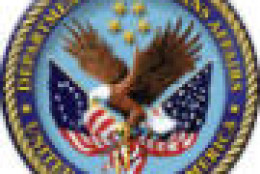Veterans Health Administration
-
The Veterans Health Administration wants to reinvent how it pays its doctors. To do that, it's modernizing its health care system in a data-driven way. Mark Byers is CEO of DSS Inc. On In Depth with Francis Rose, he explained ways data can reinvent and improve health care for the federal government.
February 05, 2015 -
VA will seek at least $1.1 billion from Congress to rescue a Denver hospital project that was supposed to cost $600 million. The final price tag won't be known for several more months. VA also asked the Army Corps to conduct a complete examination of its major construction programs across the country.
January 23, 2015 -
You might only know it from "Jeopardy!" but IBM's famous Watson technology has found a new use. Veterans Affairs plans to use it as part of a pilot program to quickly search electronic medical records. If it works as planned, it'll allow VA doctors to spend more time with their patients. Jim Demetriades is the director of emerging health technologies at the Veterans Health Administration. He joined Tom Temin on the Federal Drive with more on the program.
January 15, 2015 -
Veterans made 2 million virtual health care visits in fiscal 2014. Whether it's having a consult without leaving your living room or having medical data collected and monitored remotely, telehealth makes more care possible for many vets who can't make it to a clinic or don't have one nearby. Ellen Edmonson is deputy chief consultant of the Veterans Health Administration Telehealth Services. She joined Tom Temin on the Federal Drive to describe how telehealth works.
October 24, 2014 -
The Office of Special Counsel has persuaded the Veterans Affairs Department to settle with three whistleblowers from the Phoenix medical center. One is Paula Pedene, a former chief spokeswoman at the center. She blew the whistle about financial mismanagement by former leadership. Pedene is now a national program specialist in the Veterans Health Administration's Office of Communications. She joined Tom Temin on the Federal Drive to discuss what it's like to become a whistleblower and what got her through the ordeal.
October 07, 2014 -
David Vollman, staff ophthalmologist at the Veterans Health Administration in St. Louis, Mo., is a finalist for the 2013 Call to Service Medal.
May 17, 2013 -
The mobile revolution isn't new to many agencies. Laptops and BlackBerrys have been standard issue for many government executives for the last decade. What is different, however, is the widespread use of smartphones and tablet computers. Both agencies and citizens hold new and more immediate expectations because of these devices, and the government must adapt to this technololgy. In our special report, Gov 3.0: It's Mobile, Federal News Radio explores how some agencies are meeting the demand internally and externally for mobile devices and apps. The challenge, like any new technology, is ensuring these devices actually help meet mission goals and don't become just another shiny toy.
December 07, 2012 -
The Veterans Affairs Department's mobile projects have centered on improving internal business processes and changing how the agency interacts with the public. The department's "Clinic-in-Hand" program, which will launch early next year, will deploy iPads to family caregivers of Iraq and Afghanistan veterans. And increasingly VA doctors and nurses are eschewing the clipboards and prescription pads in favor of mobile options.
December 06, 2012 -
Kathleen Frisbee talks about mobile efforts at the Veterans Health Administration. Richard Buangan of the State Department talks about an agency Twitter account that tweets off-message. Ticora Jones discusses new development labs built with seed money from USAID.
December 06, 2012






